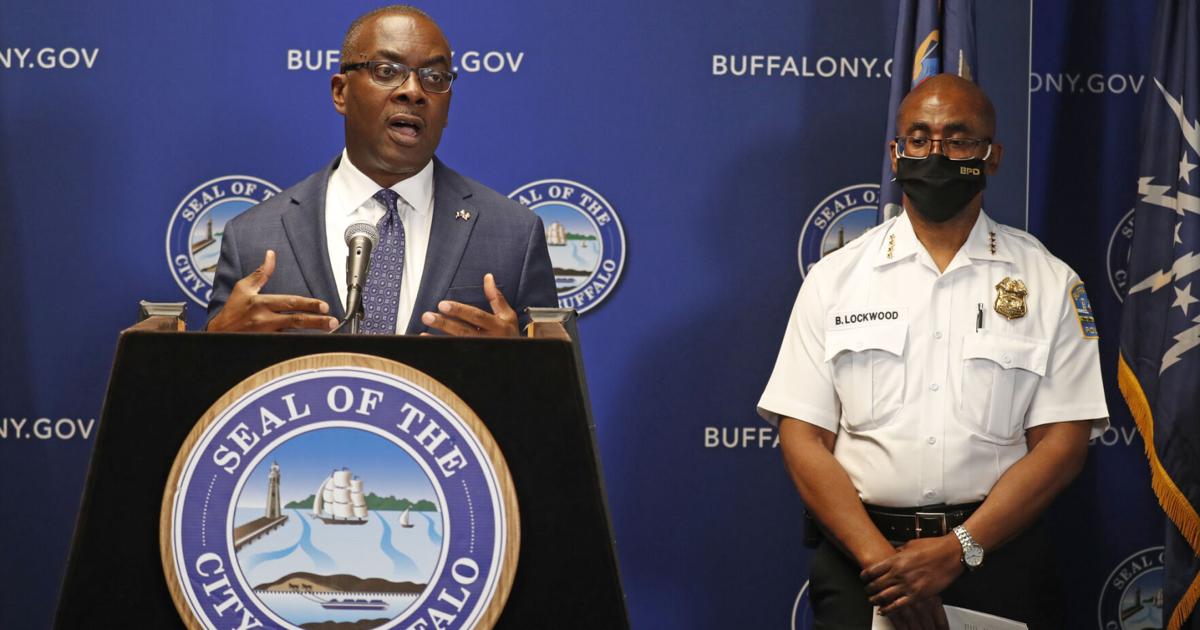It was June 2020, during the summer of George Floyd’s death, Black Lives Matter protests and nationwide appeals for police reforms.
In Buffalo, community leaders, activists and concerned residents flanked Mayor Byron Brown as he announced initiatives aimed at restorative policing in the city. Among them was Law Enforcement Assisted Diversion, a national program with projects in Albany and Ithaca.
In cities with LEAD, instead of arresting a person for a minor offense like petty theft or minor vandalism due to substance abuse, mental illness or poverty, police officers can use discretionary authority to divert the individuals into case management programs for a range of community-based support services such as transitional and permanent housing and/or drug treatment.
The Common Council approved $25,000 in the city’s 2021-2022 budget for the program. And in the city’s 2021 Buffalo Reform Agenda to the state, the Brown administration said the city was “committed” to implementing LEAD as a pilot project.
But three years after Brown’s announcement, that hasn’t happened.
City spokesman Michael DeGeorge said Buffalo police instead are steering individuals to mental health services and drug treatment, instead of arresting them, through other initiatives, including the department’s Behavioral Health Team and crisis intervention training for officers.
Since the beginning of the year there have been almost 1,000 documented interactions of individuals who experienced a mental health crisis or substance abuse disorder, and there were criminal charges pressed on only nine individuals, DeGeorge said. The remainder of individuals were either left on scene with information and referrals, linked to services, taken to a community resource or transported to a hospital for treatment.
“In essence, with the creation of the behavioral health team that handles a lot of diversion initiatives, there was less need for duplicative services,” DeGeorge said.
LEAD is…
Read the full article here

Leave a Reply